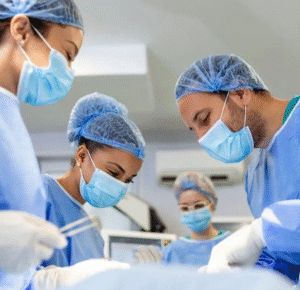A cost of kidney transplant is a crucial treatment option for individuals suffering from severe kidney failure or end-stage renal disease (ESRD). When the kidneys lose their ability to filter waste and excess fluids from the blood effectively, a transplant can be a life-changing solution. This article will cover the basics of kidney transplants, the preparation process, and what patients can expect during and after surgery.
Understanding Kidney Transplants
Kidneys play a fundamental role in maintaining the body’s health by filtering toxins and waste products from the blood, balancing electrolytes, and regulating blood pressure. When chronic kidney disease progresses to kidney failure, the body struggles to function correctly. A kidney transplant involves placing a healthy kidney from a donor into a patient whose kidneys have stopped working.
Kidney transplants are considered an effective treatment option compared to long-term dialysis, as they offer patients a better quality of life and more freedom in their daily routines. Additionally, a successful transplant improves survival rates significantly, allowing recipients to lead healthier, more active lives.
Who Qualifies for a Kidney Transplant?
Not every patient with kidney failure is automatically eligible for a kidney transplant. To qualify, individuals typically undergo a comprehensive evaluation by a transplant team to assess their physical and mental health, the severity of their kidney disease, and any other underlying medical conditions. This assessment helps ensure the patient is physically prepared for the transplant and able to follow through with post-surgery care.
Candidates for kidney transplants generally include:
- Individuals with ESRD or advanced kidney disease.
- Those with a compatible organ donor.
- Patients without severe heart, lung, or liver disease.
Types of Kidney Donors
Kidney donors can be living or deceased, each with different considerations:
- Living Donors: A living donor kidney transplant is performed when a healthy individual donates one of their kidneys to someone in need. Family members or close friends often serve as living donors, as their compatibility tends to be higher. However, non-related donors who are a compatible match can also donate. Living donor transplants have a higher success rate and typically last longer than deceased donor transplants.
- Deceased Donors: A deceased donor kidney transplant is performed with a kidney from someone who has passed away. These organs are matched to recipients based on blood type and other compatibility factors, which can result in waiting times due to the availability of suitable organs.
Preparing for a Kidney Transplant
Preparing for a kidney transplant involves several steps:
- Medical Evaluation: The transplant team conducts a series of tests, including blood tests, imaging, and health assessments, to determine the patient’s fitness for surgery.
- Psychosocial Assessment: Mental health support and counseling help ensure that the patient is emotionally prepared for the challenges and lifestyle changes that may come with a transplant.
- Financial Preparation: A transplant can involve various expenses, from surgery costs to post-surgery medications, so patients are encouraged to plan financially.
Once approved, patients are placed on a waiting list for a compatible kidney if a living donor is unavailable. This waiting time varies based on factors like blood type, urgency, and availability of matching organs.
The Kidney Transplant Procedure
A kidney transplant surgery usually takes 2–4 hours. During the procedure:
- The surgeon places the donated kidney into the lower abdomen and connects it to the blood vessels and bladder.
- The patient’s own non-functioning kidneys are typically left in place unless they are causing complications.
After the surgery, patients are monitored closely to ensure that the new kidney is functioning and that there are no complications, such as infection or blood clots.
Recovery and Post-Transplant Care
Post-surgery recovery involves careful monitoring and a commitment to follow-up care. Patients typically stay in the hospital for several days and must take Best Fertility Specialist In Bangalore to prevent their body from rejecting the new kidney. These medications are essential but come with side effects, such as an increased risk of infections, due to the immune system being suppressed.
After leaving the hospital, patients should regularly attend follow-up appointments to monitor kidney function, adjust medications as needed, and manage overall health. Lifestyle changes, such as a balanced diet, regular exercise, and avoiding alcohol and tobacco, contribute to the long-term success of the transplant.
Potential Risks and Complications
While kidney transplants have a high success rate, they do come with risks. These may include:
- Rejection of the new kidney, which can be managed through medication adjustments.
- Infections and other complications due to immunosuppression.
- Cardiovascular issues, as kidney disease patients often have underlying health problems.
Benefits of Kidney Transplantation
The benefits of a successful kidney transplant extend beyond improved health metrics. Transplant recipients often experience a significant improvement in their quality of life, energy levels, and independence. Unlike dialysis, which requires regular and time-consuming sessions, a kidney transplant allows patients to regain control over their lives and engage in daily activities without constant medical intervention.
Conclusion
A kidney transplant offers hope and an improved quality of life for patients suffering from ESRD. Though it requires a thorough preparation process and a lifetime commitment to follow-up care and medications, the benefits of transplantation are well worth the journey. For those facing kidney failure, a kidney transplant is a transformative procedure that can provide a second chance at a healthy, active life.



